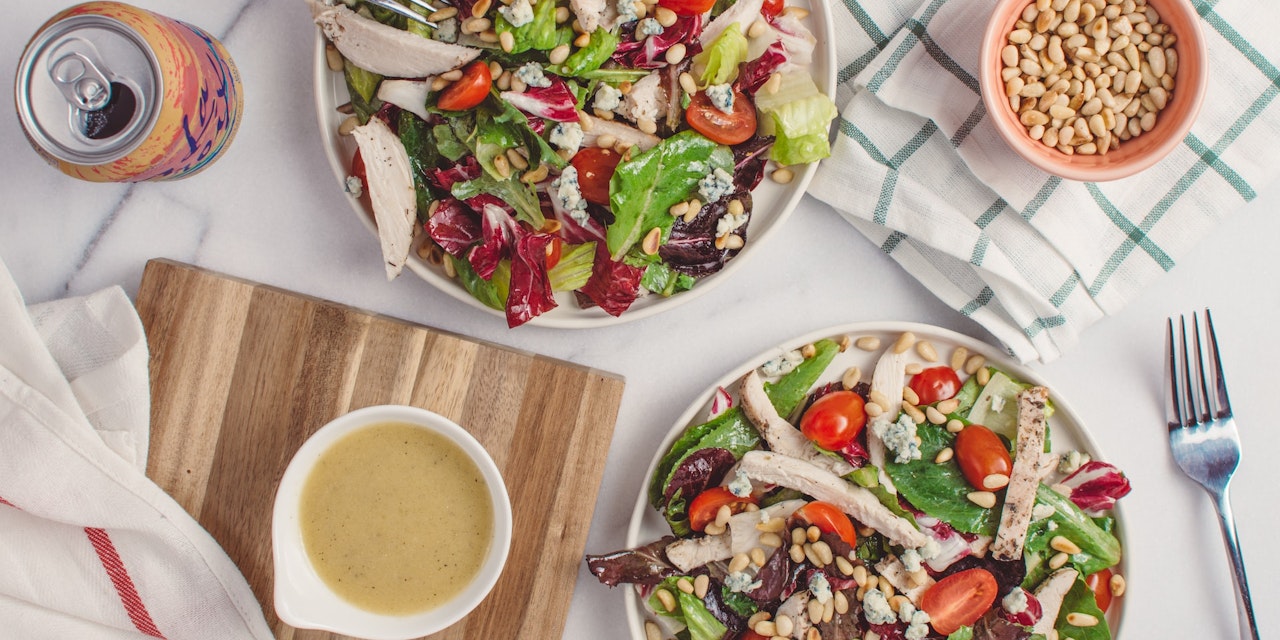Nutrient-dense eating: A key to health
Nutrient-dense foods are packed with vitamins, minerals, fiber, and healthy fats all while being comparably lower in calories.
- Published: 1/10/2023
- 4 min. read

- Published: 1/10/2023
- 4 min. read
You’re on the path to betting on your health and well-being, so why not get the biggest bang for your buck? Nutrient-dense foods are packed with vitamins, minerals, fiber, and healthy fats all while being comparably lower in calories. Learn what makes a food nutrient-dense, how they help your health, and tips for adding more to your meals!
What is nutrient-dense food?
A nutrient-dense food or beverage is one that is rich in vitamins, minerals, and other beneficial components which provide positive health effects with relatively low calories. These foods tend to be natural instead of processed, meaning they have minimal to no addition of extra fats, sugars, or other artificial ingredients (1).
Eating more nutrient-dense foods has major perks for health such as reducing your risk of chronic diseases and fending off viruses or colds (2). These foods can boost your vitality and increase energy levels so you can do more of the things you love. Some nutrient-dense foods are also high in calories such as avocado, nuts and seeds. These are perfect for gaining weight the healthy way such as if you’re looking to pack on muscle.
Energy-dense and nutrient-poor foods are the ones that are calorie-dense, meaning higher in calories, yet low in nutrients. These are best to limit since they have been linked to disease and can lead to unhealthy weight gain. These include processed foods such as soda, candy, cakes, pastries, chips, sugar-sweetened beverages, and sausage or bacon.
What makes a food nutrient-dense
These are the all-stars you want to make an appearance in all or most of your meals! Examples of nutrient-dense, yet lower-calorie foods include fruits and vegetables, whole grains, low-fat dairy, seafood, fish, fresh lean meats, eggs, lentils and beans (3). Here are some key things to look for when choosing more nutrient-dense foods:
Whole versus processed
Whole foods by nature are considered to be nutrient-dense because they contain a wide variety of nutrients. Processed foods typically have some or most of the healthy nutrients removed, in order to extend the shelf life or make the product cheaper. Food manufacturers also add in unhealthy fats, sugar and salt in order to make them taste better. So as a rule of thumb, choose your foods closer to how they are found in nature, such as an apple versus apple juice.
Check out more healthy whole foods options here: The Truth About Eating Clean.
Colorful
Eating a colorful diet increases the number of nutrients you’re getting. Colorful fruits and vegetables contain many vitamins, minerals, and antioxidants with few calories. Each color offers different nutrients so fill your plate with the colors of the rainbow. Plus it will make your meals more visually appetizing! Check out this colorful video to see more: Add more color to your diet.
Peak season
Seasonal eating focuses on foods that are naturally grown during different times of the year. This maximizes health benefits while minimizing environmental impact. For instance, a Climatarian diet, which focuses on reducing the carbon footprint, has been shown to decrease our risk of diabetes, high blood pressure, and obesity while increasing vitality, mental health and longevity!
Complete proteins
A complete protein contains all essential amino acids, or protein building blocks. Animal-based proteins, such as lean meat or eggs are considered to be complete. It's also possible to get enough protein on a daily basis without eating animal foods. The key is to focus on a variety of wholesome plant-based protein sources such as tofu, beans, lentils and whole grains and include them with most or all of your meals.
Nutrient-dense recipes (in 10 minutes or less!)
These super simple recipes are naturally nutrient-dense and delicious, keeping you satisfied, healthy, and strong!
Apple Oatmeal
This protein-packed recipe starts the nutrient-dense day off right with edible energy! Apples contain immune-boosting vitamin C and oats offer filling fiber, which also promotes digestive wellness.
Toast With Scrambled Tofu
This vegan recipe rocks nutrient density with its energy-sustaining B vitamin-rich rye bread and complete plant-based protein tofu. It also contains nutritional yeast which is an excellent source of vitamins and minerals.
Banana & Walnut Shake
This quick and delicious smoothie will shake up your life with essential healthy fats and energizing carbohydrates. Perfect nutrient density on the go!
Ready for some more delectable and nutrient-dense recipes? Check out the Lifesum app!
3 references (hide)
All of the content and media on Lifesum is created and published for information purposes only. It is not intended to be used as a substitute for medical advice or treatment. Users should always consult with a doctor or other health care professional for medical advice. If you have or think you are at risk of developing an eating disorder, do not use the Lifesum app and seek immediate medical help.